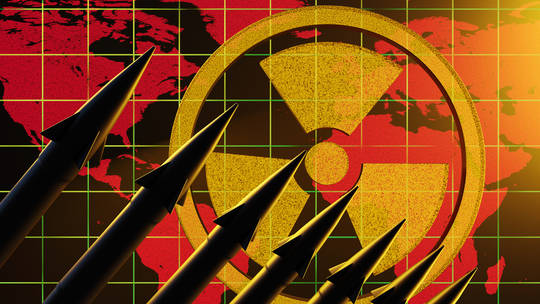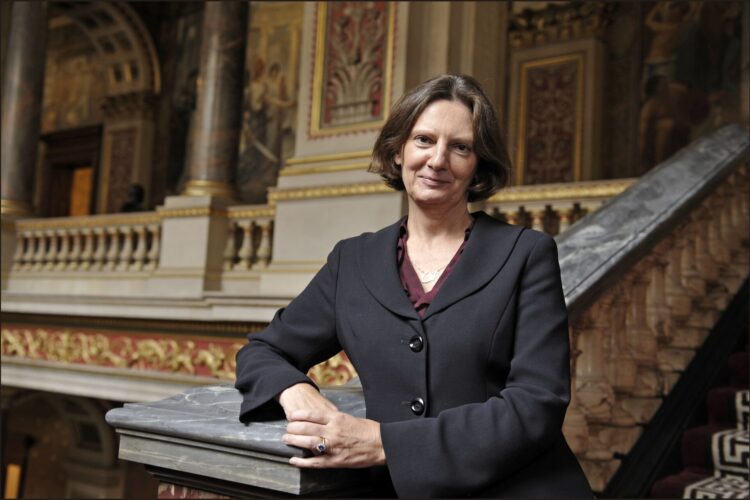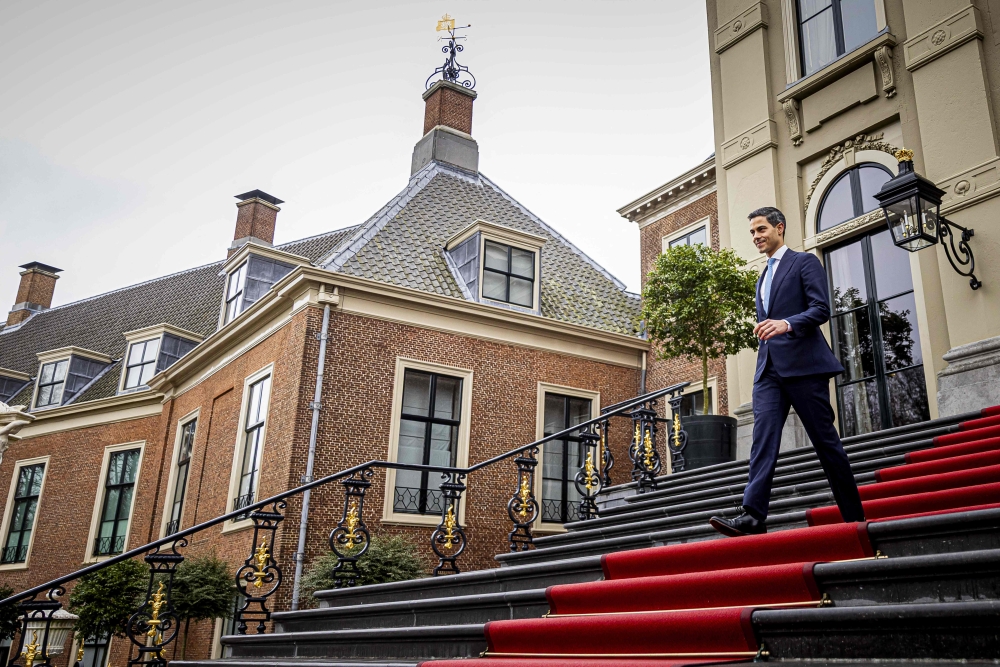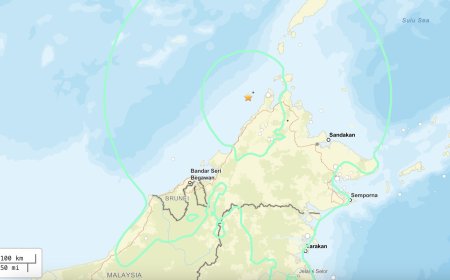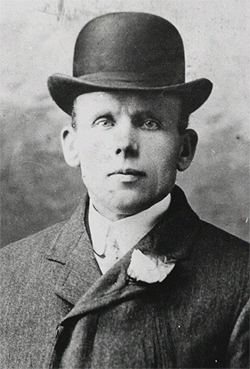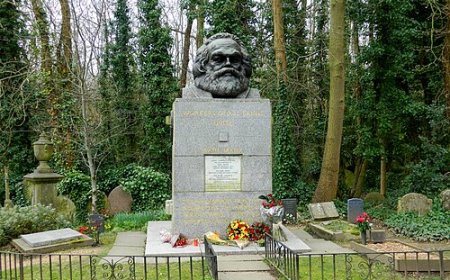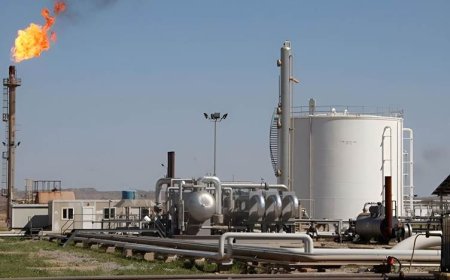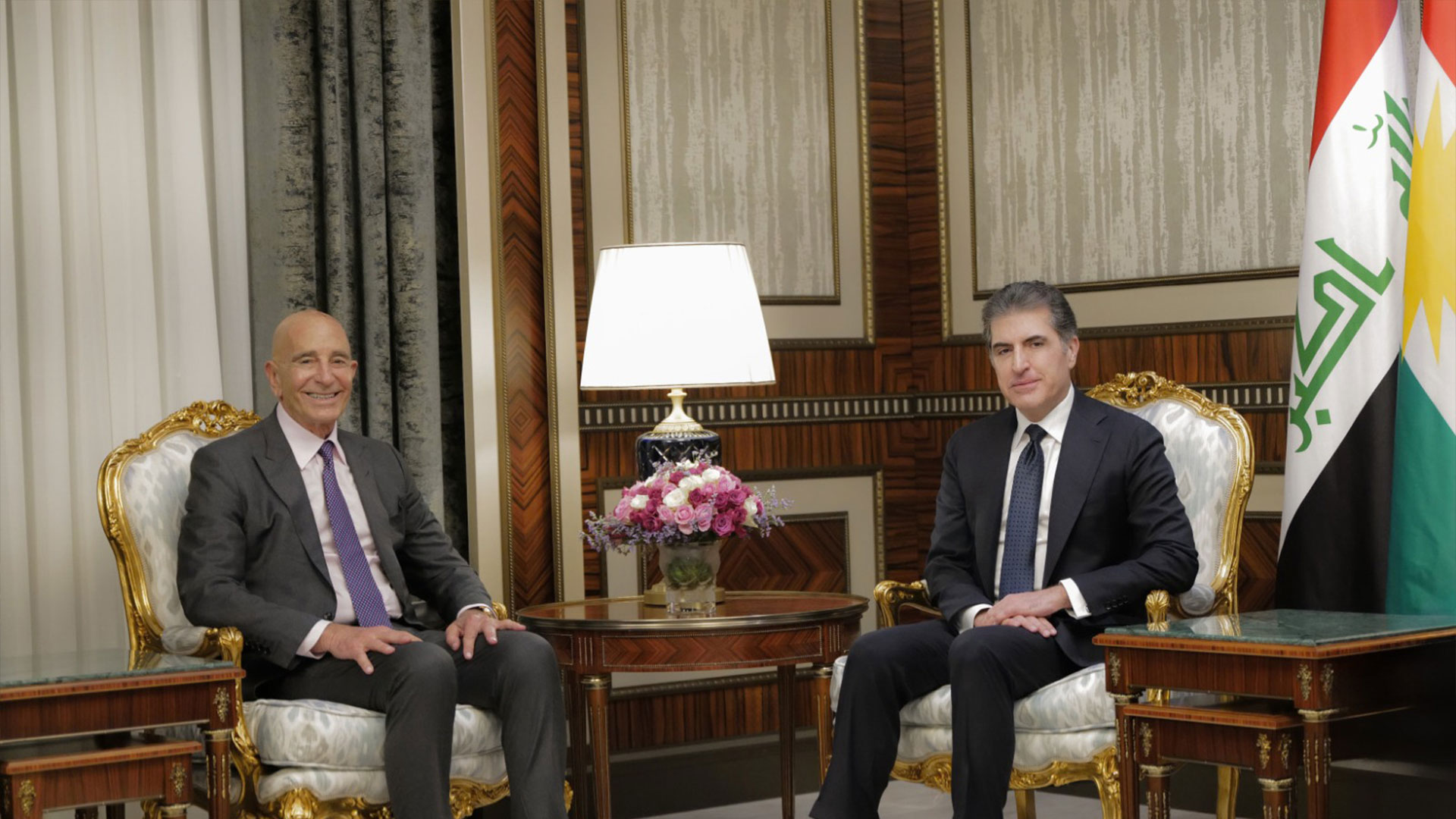Kurds are ‘our brothers in arms’: French consul general
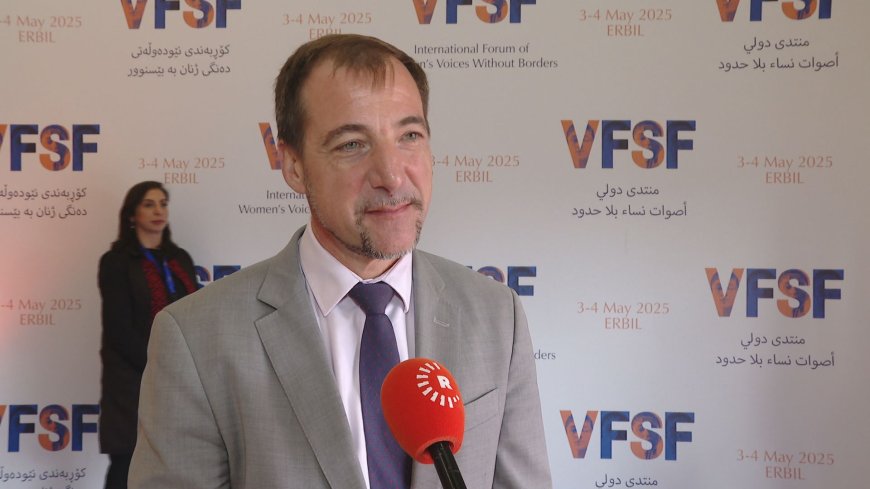
France considers Kurds in the Kurdistan Region and Syria as “brothers in arms,” French Consul General Yann Braem told Rudaw English on Saturday.
“France has a very strong relationship with Kurds and the Kurdish people. And here in the Kurdistan Region of Iraq, our forces have been fighting terrorism for years, since the emergence of the Daesh [Islamic State (ISIS)] and we have been fighting along Syrian Democratic Forces… when Daesh was active here in Iraq and in Syria,” he said on the sidelines of the Women’s Voices Without Borders conference in Erbil.
In late April, French Foreign Minister Jean-Noel Barrot visitedErbil for talks with top Kurdish officials, including Kurdistan Region President Nechirvan Barzani and Prime Minister Masrour Barzani, as well as Syrian Democratic Forces (SDF) chief Mazloum Abdi.
During his visit, the French foreign minister also described Kurds as “brothers in arms.”
Braem noted that French President Emanuel Macron “repeatedly refers to Kurds in Syria, in Iraq, in the region as our partners. He stresses this a lot, considering the long-standing relations and the fight against ISIS.”
“We really do consider Kurds as our brothers in arms when it comes to the fight against terrorism,” the French consul general said, adding, “Blood has been spilled on the ground, Kurdish blood, Iraqi Kurdish blood, Syrian Kurdish blood, but also other security forces and French blood.”
In addition to being an active member in the US-led Global Coalition to defeat ISIS, France has deployed troops to northeast Syria (Rojava) and has joined the Americans in their efforts to unite Syrian Kurds through facilitating intra-Kurdish talks to overcome long-standing grievances and formulate a united stance for negotiations with the interim government in Syria.
Speaking at an international conference on the future of Syria held in Paris in mid-February, Macron stated, “I want to express to you our loyalty to the Syrian Democratic Forces, who have paid a lot and have been precious allies in the fight against terrorism. We are loyal to our allies because we also know what we owe them.”
The SDF, the de facto army of Rojava, has been the main ally of the global coalition on the ground in Syria for the past decade.
Braem said that France’s “very strong relationship with the Kurdish people” stems from the fact that “we share values and we share a certain number of principles that we want to implement and make grow as well.”
He noted that Barrot’s trip to Erbil in late April, which followed a mid-April visit of Kurdistan Region President Nechirvan Barzani to Paris, among other official visits, is “part of an ongoing dialogue, which is about political issues, of course, about cultural projects, but also about the principles and our common ability to make democracy progress.”
Barzani was received by Macron at the Elysee Palace in Paris during that trip. They discussed the continued strengthening of bilateral ties, as well as regional developments, including in Iraq and Syria.
Commenting on the visit, French Senator Remi Feraud told Rudaw at the time that the relationship between Paris and Erbil has flourished in recent years, highlighting the critical role that regular engagement between Barzani and Macron has played in strengthening this bond.
The two leaders “have established a relationship of trust” marked by “frequent exchanges,” Feraud said, adding that “these diplomatic efforts have proven vital, particularly in a region marked by ongoing instability and geopolitical shifts.”
“President Barzani is an important and trusted actor in this region,” he said.
Consul General Braem finally pointed to the historic relationship between France and the Kurds that “started some decades ago, with Madame [Danielle] Mitterrand, the mother of the Kurds, as she is portrayed here, and her commitment and action in order to help Kurds.”
Mitterrand, first lady of France from 1981 to 1995, advocated for Kurds suffering under the regime of toppled Iraqi dictator Saddam Hussein and played an integral role in campaigning for the no-fly zone that allowed the Kurdistan Region to develop its current autonomy. She is affectionately known as the “Mother of Kurds,” and inaugurated the first Kurdish parliament in 1992.
The Women’s Voices Without Borders conference - scheduled to run from May 3 to May 4 in Erbil - is being held to mark Press Freedom Day, focusing on the situation of women journalists in the Middle East Region.
On his participation in the forum, Braem highlighted the importance of improving the skills of “female professional journalists in all Middle East” in this “era when we see a lot of disinformation and fake news” and since having “reliable information, credible information, is a key aspect of democratic debates.”
“People cannot exercise their democratic vote and choice without having reliable information, which is provided by professional journalists,” he argued, adding that women journalists face “multiple constraints.”
“They deserve this right to speak, and to speak openly, and to practice this very noble task, which is professional journalism,” he said.
He noted that holding such a conference in Erbil shed a light on the “strength of bonds” between Erbil and Paris and “our capacity to work with the government of the Kurdistan Region of Iraq, with the presidency, with the government, with all institutions, in order to make sure that on this issue, freedom of press, on the issue of women's rights and ability for women to speak.”
“We are progressing and we are doing our best to improve the situation,” he said.
Representing the French foreign ministry at the conference was Isabelle Rome, human rights ambassador at Paris’s ministry of foreign affairs.
“I am very happy to be here and I think it is important that this event had the support of the [French] government,” she told Rudaw English, adding that her main message at the forum is “to believe in women and to think that women can be actors of peace and freedom.”
Responding to a question about the human rights situation in the region, especially in Syria, Ambassador Rome said that “France has always been committed to the fight against impunity for crimes, war crimes, crimes against humanity. So the fight against impunity is one of France’s priorities. But France is also always concerned with ensuring respect for the rights of women and the rights of minorities.”
(Source:Rudaw)


